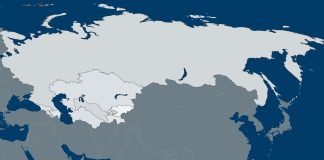Belarusian President Alexander Lukashenko made a speech last week in which he appeared to be reaching out to the West. Belarus has been a close Russian ally for years; it might even be considered a satellite. On several occasions, the Russians have used political influence to stabilize Lukashenko’s presidency. After the attempted coup by the Wagner Group in June, Lukashenko gave the group, with Russian President Vladimir Putin’s apparent approval, refuge in Belarus – although there is evidence that many of these troops have left the country. Regardless of their whereabouts, Lukashenko is closely tied to Russia.
The important point is that Lukashenko also proposed a new economic direction for Belarus, saying:
“Now we make money primarily in the East: in Russia, China. But we must not discard contacts with the high-tech West. They are nearby, the European Union is our neighbor. And we should maintain contacts with them. We are ready for this, but there should be due consideration for our interests. Believe me, the time will come (using your professional terms, I would say that now we are going through the period of turbulence), and in 2024-2025 there will be serious changes in the world.”
Lukashenko also said that Belarus needs to talk to the Poles and that he told the prime minister to contact them. “If they want, we can talk, patch up our relations,” he said. “We are neighbors, and this is something you cannot choose, neighbors are given by God.” Poland’s deputy foreign minister responded by saying that if Belarus wants to have good relations with Poland, it should stop attacks on their shared border and release Polish prisoners from Belarusian prisons.
On the surface, Lukashenko’s comments look like a careful attempt to move Belarus away from its heavy dependence on Russia and to balance that relationship with the EU and, surprisingly, Poland. Minsk and Warsaw have been hostile toward one another, massing troops on their border. The problem is that it is hard to imagine that Russia would be willing to tolerate this opening to Poland, given Poland’s position on Ukraine, its aid to Kyiv and its willing service as an arms depot for the United States. An opening to the EU might be seen as advantageous to Russia since Moscow also wants stronger ties with the bloc.
Belarus’ outreach to Poland opens another possibility. The Ukrainian-Russian war is appearing increasingly to be a frozen conflict, one that neither side can win but also one that will be difficult to settle after all the bloodshed on each side. Ending the war without something resembling victory would be extremely problematic. At the same time, the war cannot simply go on, as each side has limits in manpower, weapons and public support.
Given this, Lukashenko’s expressed desire for closer relations with the European Union and, more importantly, Poland may be something that Moscow encouraged. Belarus is very close to Russia and has had a role in the war, however minor. It might be possible for the EU to work with Belarus, and from there the road to Moscow might be easier to take. The Poles are a different question. Their hostility to Belarus is substantial, and Poland might demand unmanageable concessions from Minsk. Still, there is a desire in Europe as elsewhere for an end to the war, and the EU may see Belarus’ knock on the door as a way to improve relations with Russia. As for Poland, there are many in Europe who see Warsaw’s stance on the war as unique to Poland and its geographic position, and not in their own interest to follow. They might reward Poland or apply pressure on it to modify its position.
My tendency is to regard this as a gesture by Lukashenko, who might be trying to play the role of statesman. But I have to take into account that Belarus owes its position and potentially Lukashenko’s life to Putin. And Lukashenko’s support in Belarus is unclear. It is hard to imagine him taking a diplomatic initiative that isn’t approved by Moscow. So my gut reaction aside, I have to be open to the possibility that this is somehow an opening to Europe, with the overture to Poland being a first step in moderating its position on the war. You would not expect a direct approach, but it is clear that all players are getting tired of the war. That includes the U.S., where the 2024 elections will have a major impact on the U.S. approach to the conflict. So, Lukashenko’s bewildering approach may be a Russian-supported attempt to gauge European war weariness. If it is rejected, then it is only Belarus that will be embarrassed. If this seems complex, it is because the situation is very complex, and we are approaching the time when the sides will try subtle approaches. Or this is Lukashenko’s own attempt to secure Belarusian independence from Russia, which I really can’t buy.




 Special Collection – The Middle East
Special Collection – The Middle East